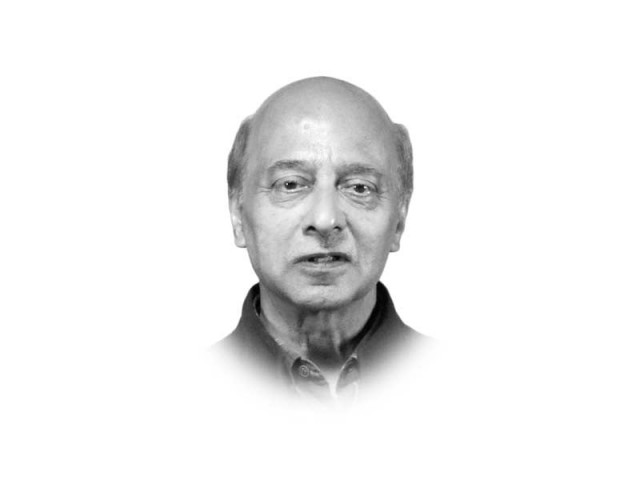Relapse of vicious parochialism of 1980s
Bangladesh has outdone Pakistan too on many fronts, including its exports and foreign exchange reserves

Though 75 years old, Pakistan seems to be moving in cycles. Next door neighbour India is celebrating strides in artificial intelligence and phenomenal grown in high-tech and information technology; and as a confident nation, the country is rubbing shoulders with G-20 and enjoying special relationship with G-7 too. Bangladesh has outdone Pakistan too on many fronts, including its exports and foreign exchange reserves which are respectively standing at $52 billion and $42 billion. Begum Hasina Wajed has managed to prioritise economy and laid the foundation for a robust growth.
Pakistan on the contrary is begging the IMF for a mere $1.2 billion.
Politically, it finds itself in a partial relapse of the petty and parochial politics that its people suffered in the 1980s and 1990s. Dozens of legal cases against ex-PM Imran Khan and many of his ministers, besides journalists speaking in his favour, are reminiscent of the vicious 80s and 90s – more so when it comes to allegations of treason and sedition or instant inclusion of Anti-Terrorist Act clauses even in conflicts of political nature. The overemphasis on “treason” appears ludicrous for the simple reason that none of the political stalwarts – Nawaz Sharif, Maryam Nawaz, Khawaja Asif, Khawaja Saad Rafiq, Nihaal Hashmi, Asif Zardari – ever faced sedition charges despite their occasional outbursts against the military establishment. They are all on record having spewed venom against the army.
Political vendetta, trumped-up cases against rival politicians, charges of sedition against opposition leaders and media-persons marked the turbulent decades of 80s and 90s, with parties that largely rested on the legacy of former dictator General Ziaul Haq – personified by ex-prime ministers Nawaz Sharif and Benazir Bhutto, embodiment of courageous liberal politics. Sleezy, stinking campaigns and personal attacks, particularly against Bhutto, as well as arrests of politicians, journalists and activists considered close to the “other” party signified that era.
But what we have seen in the last few days flies in the face of the rule of law and claims to protect integrity of institutions. The outrage over tweets by some PTI zealots and the reaction to what Dr Shahbaz Gill, Imran Khan’s chief of staff, said in a TV interview, reflect the exceptionalism that has been occasionally applied to similar cases for settling scores with opponents.
The sight of a hand-cuffed Shahbaz Gill in the court on August 10 was disgusting – to say the least. His arrest a day earlier on sedition charges took the acrimony between the ruling coalition led by Sharif’s PML and Imran Khan’s PTI to new levels. It was as disgusting as the drugs possession case against Rana Sanaullah by the Anti-Narcotics Force, which acts quite independent of the federal authorities.
The recurring theme used for arraigning individuals is disregard for respect and integrity of institutions. Beyond doubt, these institutions deserve deference but we should not miss the point that respect comes with conduct and acts that are demonstrably above board and do not smack of discrimination. But how should a Pakistani at large view the propagandist allegations against civilian politicians and bureaucrats? All these years, the National Accountability Bureau (NAB) tarnished the reputation of dozens of politicians, bureaucrats and businessmen by hounding them or keeping them behind bars for months. What about the dignity of the individuals that endured harassment, humiliation and detention by NAB and the institutions behind it?
This all happened under the cover of anti-corruption, mostly behind the back of the political government. Little came out of it but the entire blame went to the PTI government. When will Pakistan extricate itself from the vicious cycle of acrimony and vendetta in favour of political maturity and economic growth.
Published in The Express Tribune, August 15th, 2022.
Like Opinion & Editorial on Facebook, follow @ETOpEd on Twitter to receive all updates on all our daily pieces.
















COMMENTS
Comments are moderated and generally will be posted if they are on-topic and not abusive.
For more information, please see our Comments FAQ